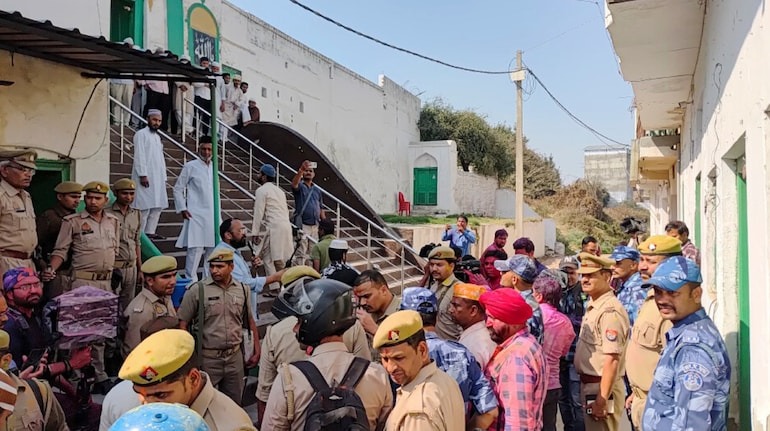
The traditional Neja Mela, held annually in Sambhal on the second Tuesday after Holi, will not take place this year after local authorities refused permission. Officials cited security concerns and strong public objections to the festival’s association with Syed Salar Masood, a medieval-era figure linked to invasions and temple destruction.
The Neja Mela Committee had requested clearance for the event, but the administration firmly rejected it. Additional Superintendent of Police (ASP) Shrish Chandra stated that no event glorifying an invader would be allowed, emphasizing that the festival is against public sentiment and could pose a security risk.
Why Was Neja Mela Canceled?
ASP Chandra justified the decision by highlighting Masood’s historical role in medieval invasions:
- Masood was involved in temple lootings, including the Somnath Temple raid.
- The festival faced strong opposition from sections of the Hindu community who consider it inappropriate to honor a historical figure associated with destruction.
- Authorities warned that raising the Neja flag would be deemed an act against national interest.
Previous Attempts to Modify the Festival
In 2023, officials attempted to rename the festival as "Sadbhavna Mela" to maintain social harmony. However, the Neja Mela Committee insisted on keeping its original title, leading to another rejection this year.
Sub-Divisional Magistrate Dr. Vandana Mishra reiterated that the event cannot take place under its historical identity, stating that the administration had already offered alternative solutions that were refused.
Despite the ban, organizers are resisting the decision. Neja Mela Committee president Shahid Hussain Masudi vowed to challenge the authorities' ruling:
“This festival is part of our religious tradition. We will fight to ensure it continues. If needed, we will take legal action.”
The Historical Significance of Neja Mela
Neja Mela is an important religious gathering for a section of the Muslim community, who observe it in honor of Syed Salar Masood, also known as Ghazi Miyan. The event includes:
- Raising the Neja (ceremonial flag) as a mark of respect.
- Offering Fatihah (prayers for the deceased) at Masood’s shrine.
However, historical records suggest a different legacy. Masood was a military commander and the nephew of Mahmud of Ghazni, leading invasions in northern India. He was defeated in 1034 AD by Raja Suheldev of Shravasti, who opposed Masood’s expansion.
Syed Salar Masood and Uttar Pradesh Politics
Masood’s legacy remains a controversial topic in Uttar Pradesh politics. His tomb in Bahraich remains a site of pilgrimage, but political leaders frequently debate his historical role.
Chief Minister Yogi Adityanath has criticized the glorification of Masood, drawing comparisons between him and Raja Suheldev, the Hindu king who defeated him. During a 2021 rally, Adityanath accused opposition leaders of supporting “followers of Ghazi” and emphasized the need to honor warriors like Suheldev instead.
Historians note that Masood’s military campaigns targeted Hindu communities, leading to forced conversions and temple destruction, including the Suraj Kund temple in Bahraich. His defeat by Raja Suheldev marked the end of his conquests.
Read More: Lucknow-Ayodhya Flyover Cancelled A Major Setback for UP’s Infrastructure

 Share
Share

_1060084071_100x75.jpg)

